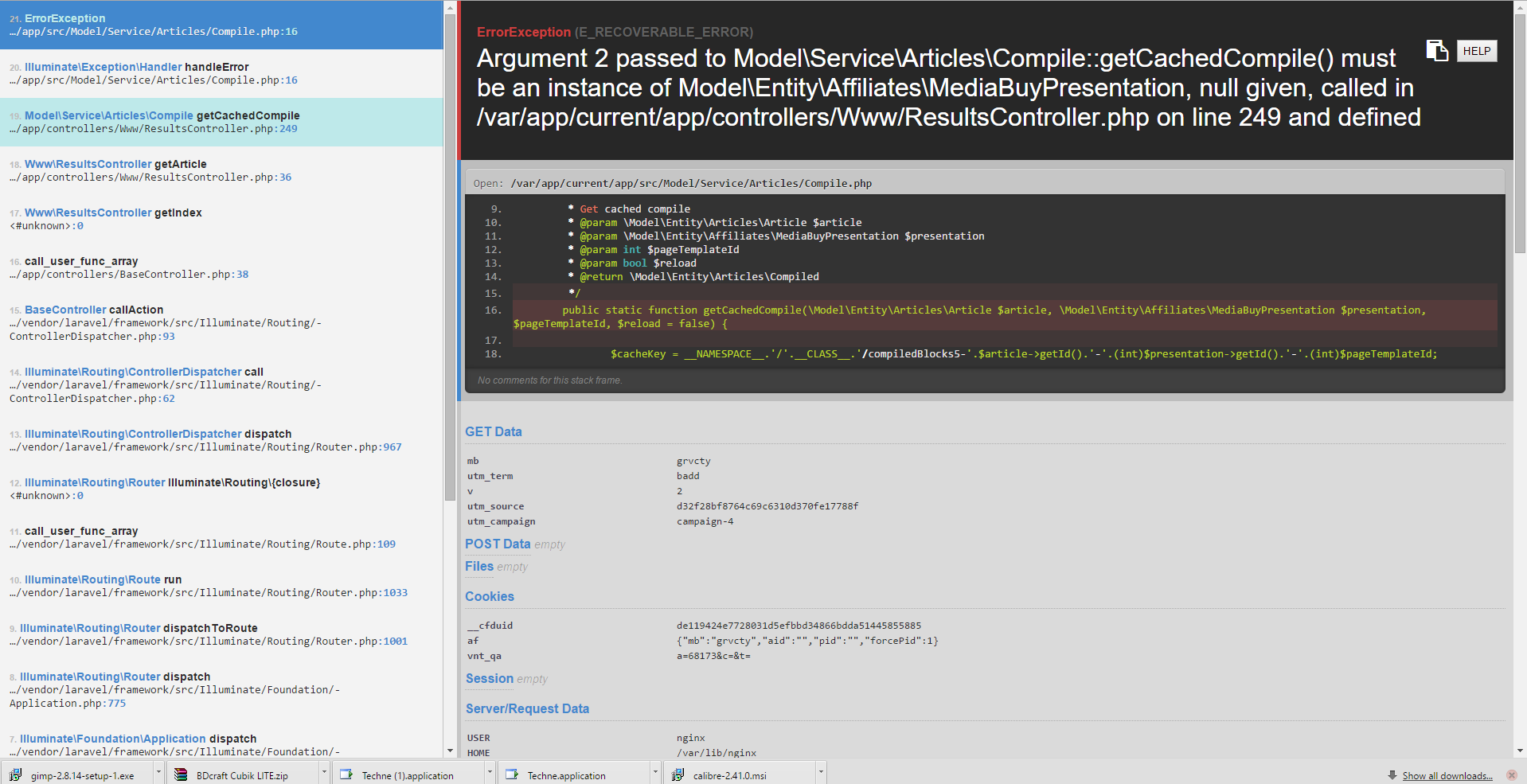|
Ask him where the persistence is
|
|
|
|

|
| # ? May 26, 2024 18:26 |
|
While in the middle of crashing, the server saves the uncommitted JMS transaction to disk
|
|
|
|
I didn't realize JMS was itself persistent. You said it wasn't doing disk IO at all.
|
|
|
|
JMS needs the disk for persistence (or there might be some way to use some sort of distributed network cache or whatever, but that doesn't matter since right now this program is only running on one server). I suspect that my co-worker either doesn't know what "persistent" means, or he doesn't know what "transaction" means, or both.
|
|
|
|
Well of course it's persistent, it says so in the name, right there: "persistent". Any more questions?
|
|
|
|
loinburger posted:While in the middle of crashing, the server saves the uncommitted JMS transaction to disk Well, we can save the transaction if we put a try/catch aro-
|
|
|
|
loinburger posted:JMS needs the disk for persistence (or there might be some way to use some sort of distributed network cache or whatever, but that doesn't matter since right now this program is only running on one server). I suspect that my co-worker either doesn't know what "persistent" means, or he doesn't know what "transaction" means, or both. You already know under which situations the problem will arise, so I guess there shouldn't be a problem with explaining it to him? Meanwhile, I've spotted my first !$var == in the wild.
|
|
|
|
canis minor posted:You already know under which situations the problem will arise, so I guess there shouldn't be a problem with explaining it to him? There shouldn't be, but evidently there is due to some combination of my failing to make myself clear and him being dense. I've given him some code to run that will hopefully convince him that there's a problem: send an item to the queue, take the item off the queue, start processing the item, call System.exit in the middle of processing, check to see if the item is still on the queue after restarting the program.
|
|
|
|
I think this is more of a "dense" thing than "not being clear" thing. It's pretty obvious why your coworkers idea is bad.
|
|
|
|
loinburger posted:My co-worker wants to "optimize" this Always turn stupidity/ignorance into work for the target. "Oh that's great, but just to be sure can you go write a program that uses this method and ends in the middle? You know, just to be sure the transactions will be saved. It's just a quick test program, it shouldn't take long". If they're an idiot, then you stopped them from writing production code for a day. If they're just ignorant then they'll hopefully learn something about how the system works and be a better programmer for it.
|
|
|
|
this one is like Crazy, I was viewing Facebook, and I clicked a story to go read and got this page, Full debug and source code view of calls. http://look.checkthisyo.com/having-bad-day/?mb=grvcty&utm_term=badd&v=2&utm_source=d32f28bf8764c69c6310d370fe17788f&utm_campaign=campaign-4 edit : looks like they fixed it now, this is what i was getting: 
|
|
|
|
Well, Subjunctive, you know the deal. Give us the horror.
|
|
|
|
I wondered about that too, but the broken link was found on FB rather than being an FB page, I believe. (Our paths don't look like that, nor error pages.)
|
|
|
|
Honestly that's the prettiest PHP error log I've ever seen. Shame about the useless autogenerated docs though. 
|
|
|
|
That's from Laravel, probably version 4.2. Anyway, that's what displays when you have debug mode turned on and your app isn't in production.
|
|
|
|
Blinkz0rz posted:That's from Laravel, probably version 4.2. ... or is in Production apparently.
|
|
|
|
Sorry, the environment isn't set to production. You know what I meant.
|
|
|
|
The real horror is everything about that clickbait site.
|
|
|
|
SupSuper posted:Honestly that's the prettiest PHP error log I've ever seen. My favorite: quote:getMimeType(): gets the type of mime
|
|
|
|
"Hey Mogomra, some poo poo I wrote was throwing errors for no real reason yesterday. Can you check it out?"code:I open up server.js, and poo poo starts jumping out at me left and right. For one, it's storing an entire "database" in memory. It contains a list of store numbers, store addresses, and store latitude and longitude values. Oh yeah, and it's redefined one time per request to this server. Oooh yeah, and it's all defined on one 15 thousand character long line... Hey, whatever, that's not what's breaking this poo poo. Here we go, line 34 is the offending JSON.parse. Wait a minute... JavaScript code:I know this is pretty common in this thread, but I just wanted to let everyone know that they're not alone. The infamous try, catch, throw is alive and well. E: Updated quote with real words that were written by the person who wrote the server.js in question to describe this task to me. Mogomra fucked around with this message at 21:19 on Oct 27, 2015 |
|
|
|
Try, catch, throw isn't necessarily an antipattern. If you wrap the exception (more for Java) or you do some work before you rethrow, it can be useful. Doing work in the catch block AFTER the rethrow, of course, is right out.
|
|
|
|
Well it does beat try, catchall, carry on then broken state.
|
|
|
|
If you want to do work then rethrow, you might want finally instead.
|
|
|
|
It could be worse, yeah, but in this case there was just no point to any of it. The extra code after the throw was more error logging. And the fact that he designed it specifically to blow up, and then came to me all like, "Well there's no reason it should be doing this" gave me the biggest "WTF" moment I've had in a long time. It's an HTTP server that's expecting JSON requests. If the request is invalid JSON, or not JSON at all, why aren't you doing something sane like sending 4xx responses instead of flat out crashing and burning? This is apparently our company's bread and butter, but I see this poo poo all the time. I believe the words, "Maybe there's a bug in Node.js" were spoken as well. Just real
|
|
|
|
Well, there probably is more than one bug is node.js too, but they're not in a position to prove it either way.
|
|
|
|
Some exception handling/logging crap I often see iscode:
|
|
|
|
loinburger posted:We wind up with one exception getting logged several times, which does not help at all when diagnosing the problem. We avoid that problem by not logging anything.
|
|
|
|
Bognar posted:We avoid that problem by not logging anything. Also avoids issues with logging impact on performance, or having to spend time looking in logs when something goes wrong. Strong move.
|
|
|
|
Hammerite posted:Why would you turn it into a #define rather than a const variable? Missed this question. For simple bits, no big deal either way. The gotcha is something that has a few different selectors placed in different bit offsets, but all with the same meaning. Clock select is a common one. code:Ideally, we wouldn't have 40 different settings crammed into 3 bytes of registers (In some fun hardware, setting say SYNC_MODE vs ASYNC_MODE completely changes the meanings and layouts of the other registers) but tiny parts consider their 256*8 register bits an extremely scarce resource (that they use 50 of, max). Minor horror: Either idea or android lint is encouraging goto fail; - it's flagging warnings wherever I brace around a single-statement if/for. Haven't figured out how to disable that one either since it helpfully doesn't include a warning code for such a "simple" popup, and the actual wording plugged into google only brings up the style war.
|
|
|
|
We have Pokemon exception handling at work. Every single method - and I do mean every single one - is structured ascode:The problem happens when you have this: code:So every time you write a loop, you have to check the implementation of every function you call and make sure it's "silent", and if it isn't you must add an extra argument to make it avoid any popups.
|
|
|
|
Harik posted:Missed this question. I still don't understand why you'd use #define rather than using const variables for the constants and functions for the macros-with-arguments. I have seen this behaviour of going and modifying code that has comments, and yet not modifying the comments, at my company. It dismays me very much, because I think comments explaining non-obvious aspects of the code are very good things to have, and yet if people are going to make changes that render the comments inaccurate then they become a liability. Obviously the ideal solution is to not have code that has non-obvious aspects, but sometimes that isn't possible. I think at the end of the day I still feel that the comments should be present and if someone edits the code but doesn't update relevant comments then they should be shouted at - it should be seen to be as bad as committing code that doesn't work correctly.
|
|
|
|
Hammerite posted:I still don't understand why you'd use #define rather than using const variables for the constants and functions for the macros-with-arguments. Why wouldn't you? Macros are just as clear in this case, and are guaranteed to produce optimal code, which is desirable in this kind of context. What tangible benefits does the alternative offer?
|
|
|
|
Soricidus posted:Why wouldn't you? Macros are just as clear in this case, and are guaranteed to produce optimal code, which is desirable in this kind of context. What tangible benefits does the alternative offer? Type-safety, primarily. Less error-prone, because the compiler can check that you're invoking the function correctly. The IDE will be better at helping you out (at least, MSVS is hopeless at macros; I assume other IDEs are similarly better at supporting code that doesn't make heavy use of macros, because macro-expansion is hairy to make sense of*). Assuming a reasonable compiler, there should be no difference after compilation, so I don't follow your "optimal code" statement. * Having "programmed" in TeX in the past, I am very wary of making use of macro expansion when there are better alternatives available.
|
|
|
|
Soricidus posted:Why wouldn't you? Macros are just as clear in this case, and are guaranteed to produce optimal code, which is desirable in this kind of context. What tangible benefits does the alternative offer?
|
|
|
|
Volte posted:For the 'functions' this may well be true, but inlining constant variables is something that even baby's first compiler can usually do It's not guaranteed or required to, though, especially if you're doing a non-optimised debug build or whatever. Relying on the optimiser to do a specific thing rather than the language standard isn't really a good idea.
|
|
|
|
Especially when you consider compilers for embedded platforms can vary wildly in quality and may consider "optimization" to be the same thing as "well, we'll just strip out the debug information".
|
|
|
|
Why bother using functions at all
|
|
|
|
Someone just unironically told me it's a bad idea to rely on constants and that you should always use preprocessor macros in order to prematurely optimize. Am I in the coding horrors thread or what?
|
|
|
|
Hammerite posted:Type-safety, primarily. Less error-prone, because the compiler can check that you're invoking the function correctly. The IDE will be better at helping you out (at least, MSVS is hopeless at macros; I assume other IDEs are similarly better at supporting code that doesn't make heavy use of macros, because macro-expansion is hairy to make sense of*). Assuming a reasonable compiler, there should be no difference after compilation, so I don't follow your "optimal code" statement. I share your distaste for macros, but why do they pose a problem for IDEs? If they can run the compiler in the background to type check your code, I don't see why it would be any harder to run the preprocessor followed by the compiler instead.
|
|
|
|

|
| # ? May 26, 2024 18:26 |
|
NihilCredo posted:I share your distaste for macros, but why do they pose a problem for IDEs? If they can run the compiler in the background to type check your code, I don't see why it would be any harder to run the preprocessor followed by the compiler instead. Mapping the preprocessor-generated code back to the source text may not be trivial.
|
|
|
































